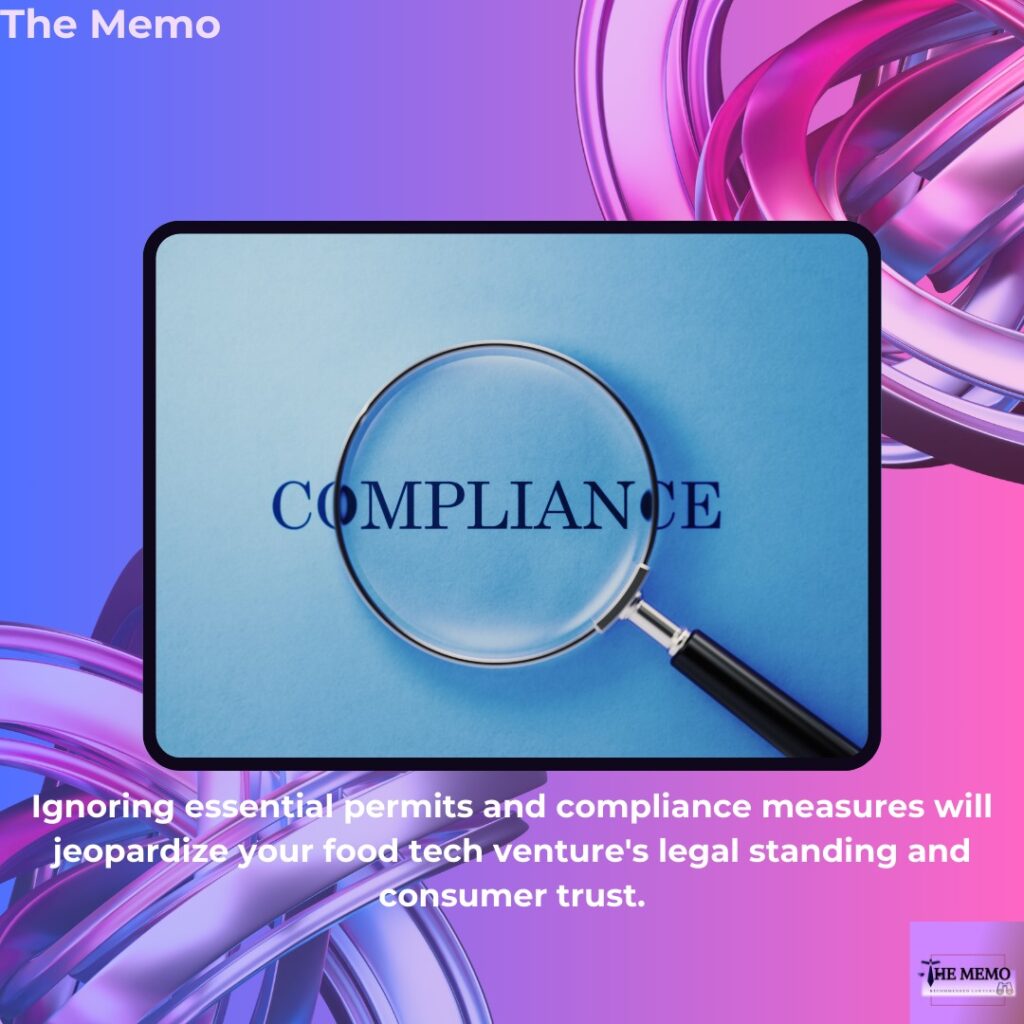
In the bustling landscape of Indian startups, the Start-up, a food tech startup, embarked on a mission to disrupt the traditional food industry with its innovative approach to meal delivery and culinary experiences. Founded in 2019 in New Delhi by a group of passionate entrepreneurs, the Start-up aimed to connect consumers with a diverse range of cuisines through its online platform. However, amidst its rapid growth and expansion, the Start-up encountered significant legal challenges due to non-compliance with permits and licenses. This article delves into the legal hurdles faced by the Start-up, their impact on the business, and the steps taken to rectify these compliance issues.
The Genesis of the start up
The start up was born out of a desire to provide consumers with convenient access to a wide array of culinary delights from the comfort of their homes. Leveraging technology and a network of partner restaurants and chefs, the Start-up offered a seamless online platform for ordering food and exploring new gastronomic experiences. With a focus on quality, variety, and convenience, ABC quickly gained traction among urban consumers seeking hassle-free meal solutions.
Despite its early success, the Start-up’s journey was hindered by legal complications stemming from inadequate permits and licenses, which posed a threat to its operations and reputation.
Legal Challenges of Non-Compliance with Permits and Licenses
Compliance with permits and licenses is essential for any food business to ensure adherence to health and safety standards and regulatory requirements. the Start-up’s failure to obtain the necessary permits and licenses led to several legal challenges:
- Operating Without a Food License
- Issue: the Start-up did not acquire the required food license from the local health authorities before commencing its operations.
- Impact: Operating without a food license exposed the Start-up to fines, penalties, and potential closure by regulatory authorities. It also raised concerns among consumers regarding food safety and hygiene standards.
- Lack of Business Registration
- Issue: ABC operated without proper business registration, including GST registration and company incorporation.
- Impact: The absence of business registration hindered the Start-up’s ability to establish credibility and conduct transactions legally. It also led to tax liabilities and regulatory non-compliance issues.
- Non-Compliance with Food Safety Standards
- Issue: the Start-up failed to adhere to food safety standards mandated by local health authorities, including hygiene practices, food storage, and handling procedures.
- Impact: Non-compliance with food safety standards posed health risks to consumers and subjected the Start-up to legal liabilities, penalties, and reputational damage in the event of foodborne illnesses or contamination incidents.
- Failure to Obtain Necessary Permits
- Issue: the Start-up did not obtain permits for specific food-related activities, such as outdoor catering, food festivals, or food sampling events.
- Impact: The lack of necessary permits restricted the Start-up’s ability to expand its business operations and participate in promotional activities, limiting its growth potential and market reach.
- Inadequate Compliance with Zoning Regulations
- Issue: the Start-up operated in areas without verifying zoning regulations and land-use permissions, leading to potential violations.
- Impact: Infringement of zoning regulations could result in legal action, fines, and disruptions to the Start-up’s operations, as well as tarnish its reputation among local authorities and communities.
Steps to Address Compliance Issues
Addressing the compliance issues was imperative for the Start-up to regain regulatory trust, safeguard its operations, and preserve its brand reputation. The founders adopted a proactive approach to rectify these challenges:
- Acquiring Food License and Business Registration
- Solution: the Start-up engaged legal advisors to facilitate the process of obtaining a food license and completing business registration formalities, including GST registration and company incorporation.
- Benefit: Securing the necessary permits and licenses legitimized the Start-up’s operations, ensured compliance with regulatory requirements, and enhanced its credibility among stakeholders.
- Implementing Food Safety Practices
- Solution: the Start-up invested in training programs and resources to educate its staff on food safety practices, including hygiene, sanitation, and proper food handling techniques.
- Benefit: Implementing robust food safety practices mitigated health risks, reduced the likelihood of regulatory violations, and instilled confidence in consumers regarding the safety and quality of the Start-up’s offerings.
- Obtaining Required Permits for Events and Activities
- Solution: the Start-up proactively applied for permits and approvals for conducting outdoor catering, participating in food festivals, and organizing promotional events.
- Benefit: Obtaining the necessary permits enabled the Start-up to expand its business opportunities, reach new customers, and showcase its culinary offerings without regulatory barriers.
- Compliance Audit and Due Diligence
- Solution: the Start-up conducted a comprehensive audit of its operations to identify areas of non-compliance with permits and licenses, zoning regulations, and other legal requirements.
- Benefit: Conducting regular compliance audits helped the Start-up identify gaps, rectify deficiencies, and establish a culture of compliance within the organization, reducing the risk of future legal issues.
- Engaging with Regulatory Authorities
- Solution: the Start-up initiated dialogue and collaboration with local health authorities, zoning boards, and regulatory agencies to address compliance issues, seek guidance, and build constructive relationships.
- Benefit: Engaging with regulatory authorities fostered transparency, communication, and mutual understanding, facilitating smoother compliance processes and mitigating enforcement actions.
Conclusion
The journey of the Start-up underscores the critical importance of regulatory compliance in the food tech industry. Non-compliance with permits and licenses not only poses legal risks but also jeopardizes consumer trust, brand reputation, and business sustainability. However, by acknowledging and addressing these compliance challenges head-on, the Start-up was able to navigate through legal hurdles and emerge stronger and more resilient.
Through proactive measures such as obtaining the necessary permits and licenses, implementing robust food safety practices, and engaging with regulatory authorities, the Start-up demonstrated its commitment to operating ethically, responsibly, and in accordance with the law. These efforts not only ensured compliance with regulatory requirements but also safeguarded the health and well-being of consumers, thereby enhancing trust and credibility in the marketplace.Moving forward, the Start-up must remain vigilant and proactive in its compliance efforts, regularly reviewing and updating its practices to align with evolving regulatory standards and industry best practices. By prioritizing compliance and maintaining a culture of accountability and transparency, the Start-up can continue to thrive and innovate in the competitive food tech landscape, while ensuring the safety, satisfaction, and trust of its customers and stakeholders.





